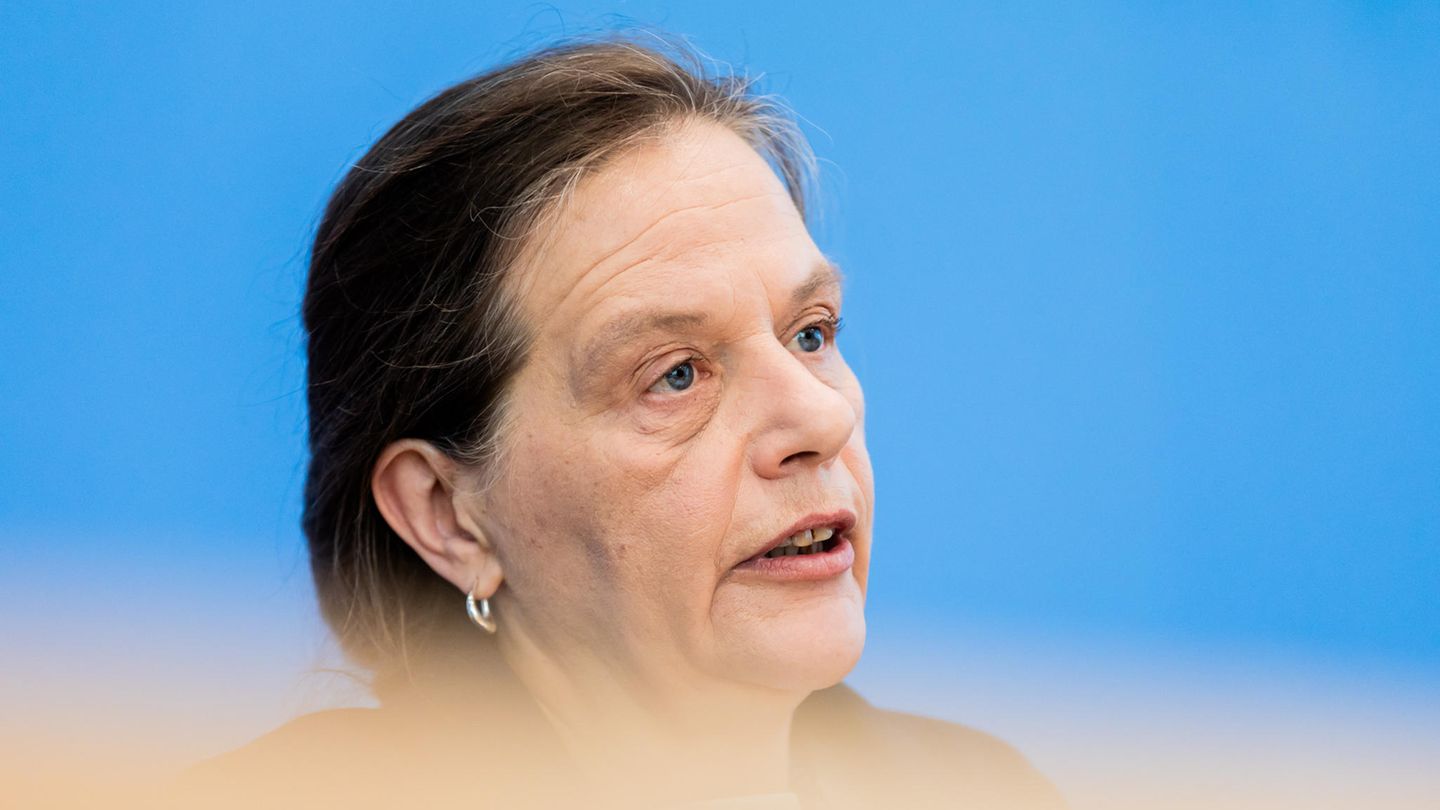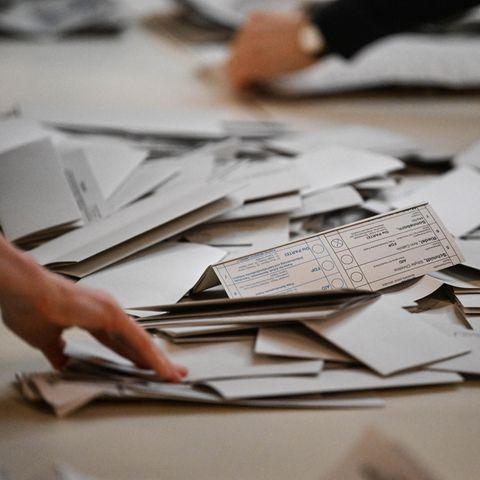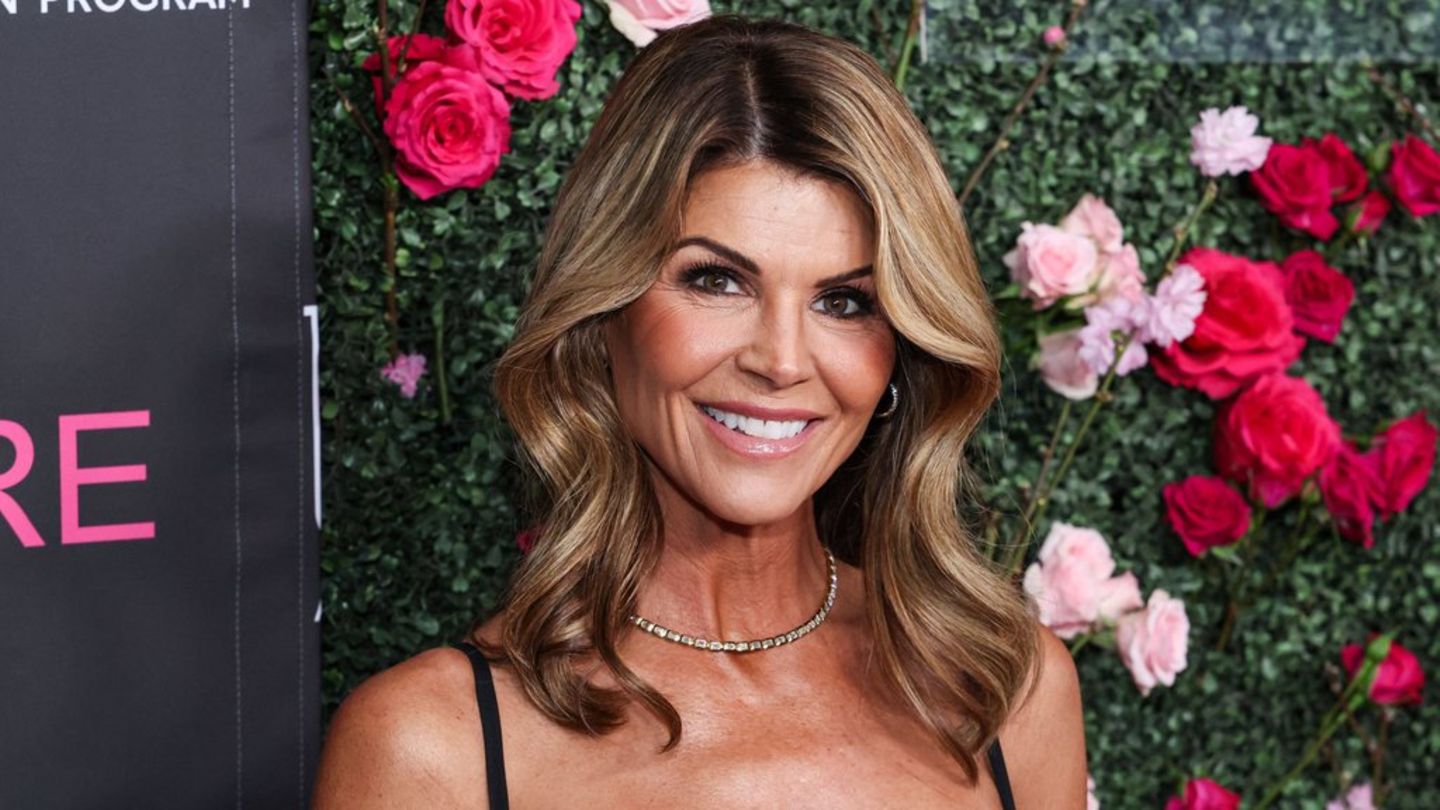Federal election
The election audit committee advises on the preparation of new elections
Copy the current link
When will the next federal election take place? After the end of the traffic light coalition, there is a dispute about this. Now the election audit committee is meeting.
There is movement in the debates about the date for new elections: the Bundestag’s election audit committee will discuss the necessary preparations in a special public meeting on Tuesday. As the Bundestag announced on Monday, Federal Returning Officer Ruth Brand will also take part. Brand discussed the situation with the returning officers of the states on Monday.
The special committee meeting was requested by the general counsel of the SPD parliamentary group, Johannes Fechner, on behalf of the SPD and the Greens. In the letter to Bundestag President Bärbel Bas and committee chairwoman Daniela Ludwig (CSU), which was available to the AFP news agency, Fechner justified the request with the current discussions between the parties about the date for the new election.
He also referred to the need “for elections to be properly prepared and conducted.” The purpose of the special meeting was “against this background to provide early clarity about the steps relevant to election preparation and the lead time that makes sense from a technical point of view,” wrote Fechner.
Returning officers advise on new elections
After discussions with her colleagues from the federal states, Brand announced that all measures would be taken “to ensure that an early election of the German Bundestag can take place within the legal deadlines.” She further emphasized: “In order to best meet challenges in electoral organization that arise from the deadlines for a new election, the period of 60 days between the dissolution of the Bundestag and the new election should be exhausted.”
The FDP ministers are gone – except for one: This is what the new cabinet looks like
Olaf Scholz (SPD) will remain head of government as Chancellor after the end of the traffic light coalition. However, Scholz has announced that he will soon ask the Bundestag for a vote of confidence
© Bernd Elmenthaler / Imago Images
Chancellor Olaf Scholz (SPD) announced last Wednesday after the break in the traffic light coalition that he wanted to ask a vote of confidence in the Bundestag on January 15th. The CDU/CSU in particular is calling for this to be brought forward drastically, if possible to Wednesday of this week. On the other hand, there are concerns about the deadlines that have to be met before new elections, some of which would fall during the Christmas season.
Federal Returning Officer Ruth Brand skeptical
Among other things, Federal Returning Officer Brand expressed skepticism about an early election date and pointed out the associated risks for the proper organization of the election. Brand did not explicitly reiterate these concerns in her statement on Monday. She announced that regardless of the later election date, necessary measures such as the formation of electoral committees, the formation of electoral districts and other organizational preparations were already being taken.
She also pointed out that the procedures for an early election are basically the same as for a regular election – although sometimes with significantly shorter deadlines. In previous elections, it was common practice to halve the deadlines for reporting participation in the election or for submitting district election proposals or for submitting state lists.
Union criticizes Brand
Brand was sharply criticized, especially from the CDU/CSU, because of her concerns about an early election date. “One has the impression that there was political influence,” said Union parliamentary group vice-president Jens Spahn (CDU) to the broadcasters RTL and ntv.
“The Federal Returning Officer must ensure that new elections are possible within the constitutionally prescribed deadlines,” said FDP politician Stephan Thomae to the AFP news agency. “Anything else is unacceptable,” he continued.
Government spokesman Steffen Hebestreit rejected the allegations against Brand as “absurd”. He also advises not to question the independence of “those who are responsible for this,” he said in Berlin.
Scholz had recently signaled a willingness to talk on the question of the election date. He suggested that the parliamentary group leaders of the SPD and Union, Rolf Mützenich and Friedrich Merz, should try to reach an amicable solution. According to a report in the “Rheinische Post”, Merz also showed a willingness to compromise. Instead of the election date in January that he had originally envisaged, he brought up February 16th or 23rd in the Union’s parliamentary group executive committee.
After Scholz lost a vote of confidence, Federal President Frank-Walter Steinmeier would have 21 days to decide whether to dissolve the Bundestag. The 60-day period until the new election then begins.
AFP
tkr
Source: Stern
I have been working in the news industry for over 6 years, first as a reporter and now as an editor. I have covered politics extensively, and my work has appeared in major newspapers and online news outlets around the world. In addition to my writing, I also contribute regularly to 24 Hours World.





